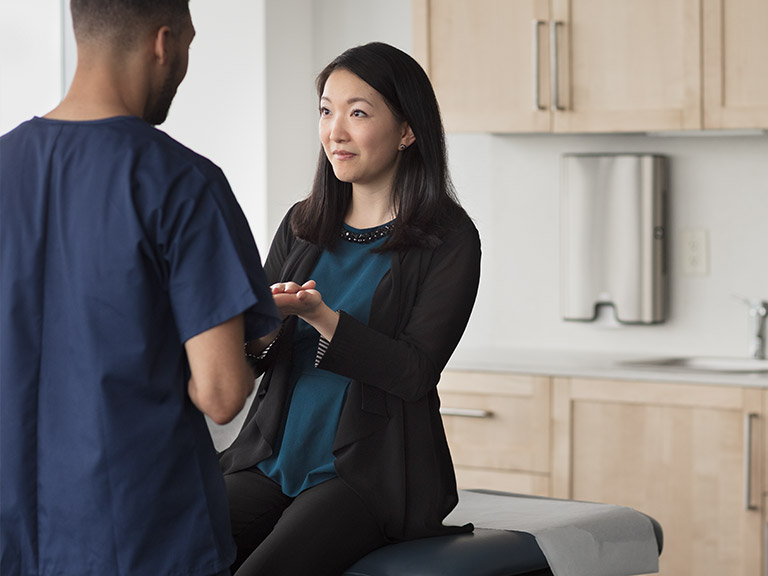


JOBST compression garments can be a major relief and provide help for a number of different venous or lymphatic diseases. Regardless of the severity of your condition, JOBST has an expertly designed product to suit your need – from minor problems, like heavy legs to more serious conditions like venous leg ulcers.
JOBST is here to be a resource for you: here you can learn more about venous and lymphatic diseases, including ways to manage them using gradient compression.
Pulmonary embolism: Blockage of an artery in the lung by a blood clot. This can sometimes result from DVT, where the clot travels up to the lungs.
Superficial vein thrombosis (SVT) phlebitis: SVT is an acute disease where thrombus formation is connected with an inflammatory response of the venous wall. This may be caused by mechanical, chemical, biological and, very rarely, infectious factors. The most common form is a primary thrombosis in a varicose vein (VV) with a secondary sterile inflammation of the vein wall (varicophlebitis)
Post-thrombotic syndrome (PTS): Condition following a deep vein thrombosis resulting from damage to deep vein valves or a blockage. PTS is a common complication of DVT - one in every three people with DVT will develop clinical symptoms such as chronic pain, swelling, and skin changes in the legs.
Chronic venous insufficiency (CVI): CVI is a typical venous disease of the legs. Early statuses are characterised by swelling and pain, but if the disease progresses more severe symptoms occur, such as skin discoloration and ulcerations.
Ulcer of the leg (venous stasis ulcer): This is the most severe form of CVI resulting from a chronically insufficient supply of oxygen and nutrients to tissue; in the worst-case scenario the tissue dies off, producing an ulcer of the lower leg.
If you are uncertain or have further questions about venous diseases, it is advisable to consult a doctor to ensure a correct diagnosis and proper treatment.